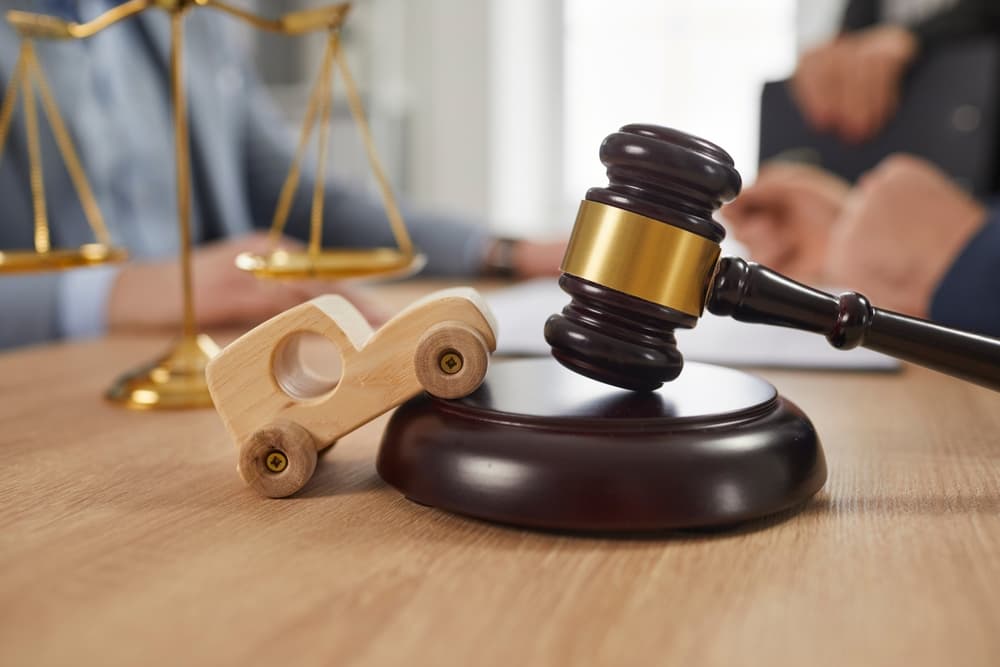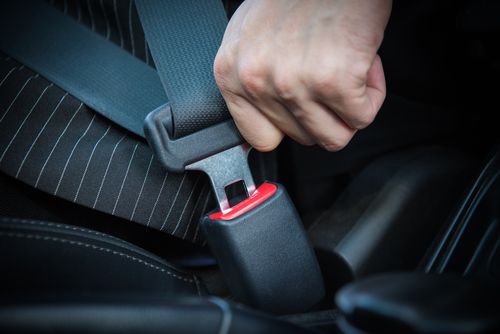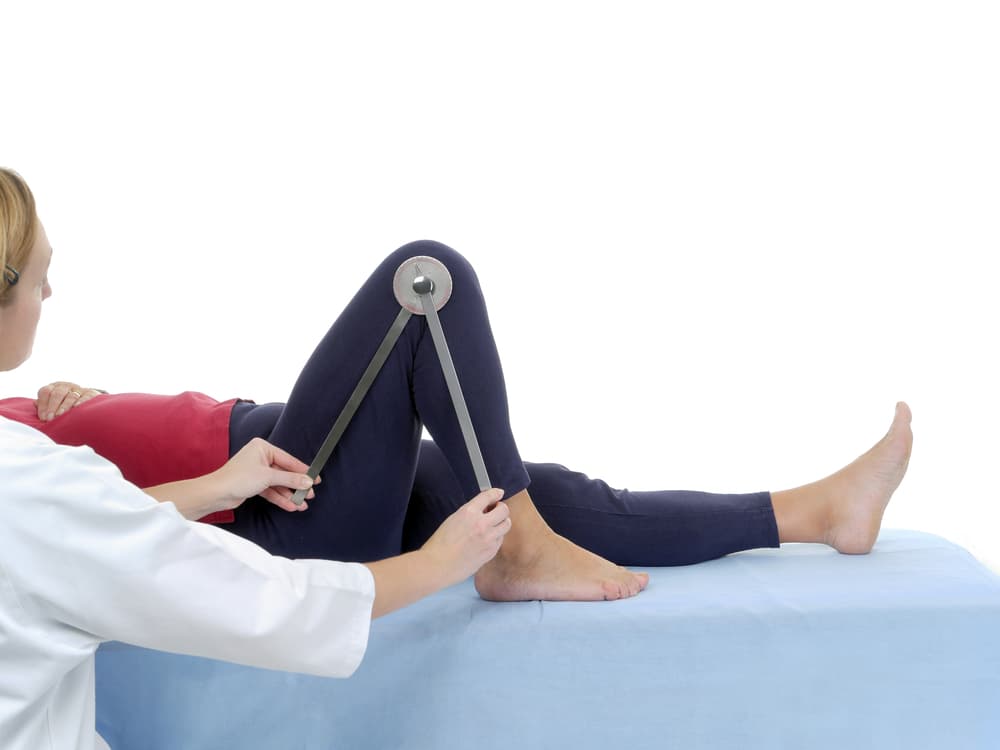Car accidents are traumatic events, and when a head injury is involved, the aftermath is even more overwhelming. The stress of dealing with insurance claims, medical treatment, and the uncertainty of the future can be a lot to handle.
If a negligent driver caused you to hit your head in a car accident, you’re likely looking for guidance on what steps to take next, such as your legal rights and possible compensation. Well, you’re in the right place.
Steps to Take After You Hit Your Head in a Car Accident
When you’ve been in a car accident, the aftermath is confusing and disorienting, especially if you’ve hit your head. The first thing to remember is that your health is your top priority.
However, even if you don’t feel immediate pain or symptoms, you need to act as quickly as possible to protect your health and legal rights.
1. Go to the Doctor
Regardless of how you feel, head injuries should always be evaluated by a medical professional. In the days following the accident, you may not feel symptoms right away, but certain injuries, such as concussions or brain trauma, may not manifest immediately.
Getting checked by a doctor helps establish a medical record, which plays a part in a personal injury case later on.
2. Document Your Head Injury
Whether you’re feeling okay initially or experiencing discomfort, make sure to document your symptoms as soon as possible. Keeping track of any changes in your condition (headaches, dizziness, nausea) is important for your medical treatment and legal case. This documentation can also serve as evidence in a personal injury claim.
3. Report the Accident
If you haven’t already, file a police report as soon as possible. A police report not only provides an official record of the incident but also helps clarify the circumstances of the crash.
4. Avoid Talking About the Accident Too Much
Be cautious of what you say to others, especially regarding fault. Any admission of blame, even unintentionally, can hurt your case. You should consult with a lawyer before making statements that could be used against you.
Common Head Injuries Resulting from Car Accidents

Head injuries are some of the most concerning types of injuries that can occur after a car accident. There are many types of head injuries, and each one carries different implications for treatment and legal remedies.
Concussions
A concussion is one of the most common car accident injuries. It’s a mild form of brain injury, but it can still have lasting effects on your cognitive function, memory, and overall well-being. Concussions are often the result of a sudden jolt or impact to the head and may not show symptoms immediately.
Traumatic Brain Injuries (TBI)
More severe than a concussion, a TBI can be life-altering and result in long-term cognitive issues, emotional changes, and physical disabilities. These injuries often require extensive treatment and rehabilitation, making them one of the most important injuries to document in a legal claim.
Skull Fractures
In more extreme cases, a car accident may result in skull fractures. This type of injury requires urgent medical care, as fractures to the skull can lead to brain damage or complications like internal bleeding.
You need to have a general understanding of the different types of head injuries for both your health and any potential legal actions.
Seeking immediate medical treatment and documenting your injury can help your lawyer build a stronger case if you decide to pursue a personal injury claim.
For resources and support after a brain injury, visit the Brain Injury Association of America.
Why Medical Documentation is Important for Your Legal Case
When pursuing a personal injury claim after a car accident, one of the most important pieces of evidence is your medical records. Proper medical documentation helps your lawyer prove the extent of your injuries, the treatment you’ve received, and the impact these injuries have had on your life.
Building a Case with Medical Documentation
Medical documentation is critical for establishing the severity of your injury. A doctor’s evaluation, test results, treatment plans, and progress notes all contribute to demonstrating the real impact of the head injury.
If your injury was caused by the accident, these records provide a clear connection between the incident and your condition.
The Impact on Your Legal Claim
Without medical documentation, it’s much harder to prove the extent of your injuries and the compensation you need.
Insurance companies and opposing parties may argue that your injuries were not as severe or not caused by the accident. Medical records make it more difficult for them to deny your claim.
Reporting the Accident: What You Need to Know
Reporting the accident is one of the first things you need to do after a head injury. A police report can provide details about the crash, including witness statements, accident diagrams, and other relevant information to help your case.
How to File a Police Report

If the accident resulted in injury or significant property damage, you need to report it to the police. Be sure to gather the accident report number and request a copy for your records.
This document is often required by your insurance company and will help provide an official record of the event.
Importance of Reporting to Insurance Companies
You also need to report the accident to your insurance company. Failing to do so could result in the denial of your claim. Insurance adjusters may also request copies of the police report and your medical records to assess your claim.
Gathering Evidence to Support Your Claim After a Car Accident
In addition to medical documentation and police reports, collecting other evidence plays a part in building a solid case. The more evidence you have, the stronger your claim can be.
Photographs and Videos
Take photos of your injuries, the damage to your vehicle, and the accident scene itself. These images can be used to establish the severity of the accident and the damages involved.
Witness Statements
If there were witnesses to the accident, gather their contact information and ask for statements. These individuals can provide an unbiased account of the incident, which can strengthen your case.
Liability and Proving Negligence in Head Injury Cases
To win a personal injury case after a head injury in a car accident, you must prove that the other party was negligent. In New York, this means showing that the other driver was at fault and caused the accident.
How to Prove Fault in a Car Accident
To prove fault, your lawyer will gather evidence, such as witness statements and expert testimony, to demonstrate that the other driver’s actions were the cause of the accident. This might include proving that the driver was speeding, distracted, or failing to follow traffic laws.
Negligence in Head Injury Claims
In cases involving head injuries, it’s imperative to establish that the accident caused the injury. The severity of a brain injury or concussion can be difficult to prove without sufficient evidence, so it’s essential to document every detail.
Types of Compensation You May Be Entitled To After a Car Crash
If you have suffered a head injury due to a negligent driver, you may be entitled to several types of compensation, depending on the circumstances of the accident and the extent of your injuries.
Medical Expenses
This includes the cost of hospital visits, treatments, surgeries, and rehabilitation. If you suffer long-term effects from your injury, these future medical costs may also be covered.
Pain and Suffering
Pain and suffering are difficult to quantify, but they can be a significant part of a personal injury claim. If you’ve experienced long-term pain, emotional distress, or a decreased quality of life due to the injury, you may be entitled to compensation for these non-economic damages.
Lost Wages
If your head injury has left you unable to work, you can claim compensation for the income you’ve lost due to your inability to perform your job. This can also include future lost earning potential if your injury prevents you from returning to your previous job or career.
Dealing with Insurance Companies After a Head Injury

After a car accident, you will likely have to deal with insurance companies. However, insurance companies are often more concerned with paying out as little as possible than making sure you receive fair compensation for your injuries.
Dealing with Adjusters
Insurance adjusters are trained to minimize the amount they pay in claims. They may ask leading questions or offer a low settlement, hoping you will accept it quickly. It’s important not to accept an offer without consulting a lawyer first.
How Insurance Affects Head Injury Claims
Insurance companies may be reluctant to offer fair compensation for head injuries, as these injuries can lead to long-term and expensive treatment. An experienced lawyer can make sure your injury is taken seriously and you receive appropriate compensation.
When to Hire a Car Accident Lawyer
Hiring a personal injury lawyer is highly recommended if your injury is severe or liability is unclear.
Why Hire a Lawyer for Your Head Injury Claim
A lawyer can help you deal with insurance companies, collect evidence, and negotiate a fair settlement. They can also confirm that you comply with all deadlines and legal requirements, which is essential for a successful claim.
Filing a Personal Injury Lawsuit After an Auto Accident
If negotiations with the insurance company break down or the at-fault party refuses to settle, you may need to file a personal injury lawsuit.
How to File a Lawsuit
Your attorney will guide you through the process of filing a lawsuit, including submitting necessary documents, attending hearings, and preparing for trial.
The Importance of Expert Testimony in Head Injury Cases
Expert testimony plays a role in head injury cases, as it helps establish the extent of your injuries and the long-term effects.
Medical Expert Testimony
A medical expert can testify to the severity of your head injury and how it will affect you in the long run. This expert can also explain any medical treatments you’ve undergone and their potential costs.
Accident Reconstruction Experts
In some cases, accident reconstruction experts are used to demonstrate how the accident occurred and how it caused your injury.
Long-Term Impacts of Head Injuries and Legal Remedies
Head injuries can have long-lasting effects on your life, and it’s essential to factor these into your claim for compensation.
Chronic Brain Injury
In some cases, a head injury may lead to chronic brain injury, affecting cognitive function, memory, and emotional regulation. These long-term impacts should be considered when calculating compensation.
Compensation for Long-term Effects
If you suffer permanent disabilities, the compensation you seek should cover ongoing medical treatment, rehabilitation, and any future loss of income.
Protecting Your Rights: What Not to Do After a Head Injury
There are several mistakes you should avoid after sustaining a head injury in a car accident.
What Not to Do

- Don’t admit fault
- Don’t settle with the insurance company without consulting a lawyer
- Don’t delay medical treatment
Taking the proper steps after a head injury in a car accident can help protect your health and your legal rights.
Talk to a Knowledgeable Car Accident Attorney Today
If you’ve sustained a head injury in a car accident, you need to contact a knowledgeable personal injury lawyer. They will guide you through your case so you can receive compensation for your injuries. Call (631)-451-7900 today to schedule your free, no-obligation consultation.









